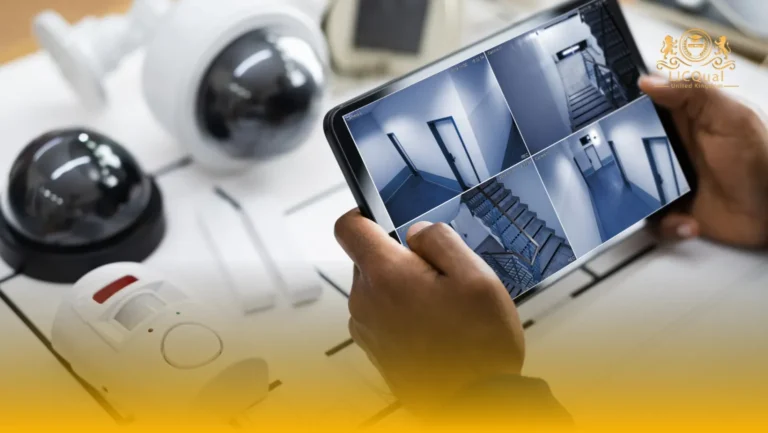The LICQual Level 2 Certificate in Computer Networking is an internationally recognized qualification tailored for individuals looking to deepen their understanding of network systems and develop practical skills for the IT industry. This intermediate-level course is ideal for those who already have basic knowledge of computing or networking and wish to take the next step in their technical education. The program is designed to provide a balanced mix of theoretical knowledge and real-world application, making it a valuable credential for anyone entering the field of computer networking.
Learners enrolled in this course will explore a broad range of networking concepts, including IP addressing and subnetting, configuring routers and switches, wireless networking, network security fundamentals, and network troubleshooting. The course also covers the OSI and TCP/IP models, protocols such as DHCP, DNS, and HTTP, and practical exercises in setting up and managing small to medium-sized networks. The LICQual Level 2 Certificate in Computer Networking ensures that students gain hands-on experience with modern tools and technologies used in today’s networking environments.
This certificate is particularly suitable for students, early-career IT professionals, and technical support staff who wish to expand their skills and qualifications. It also serves as a valuable pathway for those aiming to pursue further certifications like CompTIA Network+, Cisco CCNA, or other vendor-specific programs. With a strong emphasis on employability, this course enhances learners’ ability to work in IT support roles, junior network administration, and helpdesk operations within a variety of organizational settings.
Delivered through a flexible learning format, the LICQual Level 2 Certificate in Computer Networking combines structured study materials, instructor-led training, lab simulations, and assessments to support diverse learning styles. Learners benefit from guided practice and case-based scenarios that replicate real-world challenges, helping them build the confidence to manage basic network configurations and identify connectivity issues effectively. The curriculum is aligned with global industry standards, ensuring relevance and career readiness.
Upon successful completion of the LICQual Level 2 Certificate in Computer Networking, learners will possess the technical competence to support and manage networking systems within business environments. As digital infrastructure becomes increasingly essential to every industry, the demand for networking professionals continues to rise. This certificate not only improves job prospects but also opens the door to more advanced academic and professional opportunities in the growing field of computer networking.
Course Overview
Qualification Title
LICQual Level 2 Certificate in Computer Networking
Total Units
6
Total Credits
12
GLH
36
Qualification #
LICQ2200462
Qualification Specification
To enroll in the LICQual Level 2 Certificate in Computer Networking applicants must meet the following criteria:
|
Qualification# |
Unit Title |
Credits |
GLH |
|---|---|---|---|
|
LICQ2200462-1 |
Network Operating Systems |
2 |
6 |
|
LICQ2200462-2 |
Network Addressing and Subnetting Techniques |
2 |
6 |
|
LICQ2200462-3 |
LAN and WAN Technologies |
2 |
6 |
|
LICQ2200462-4 |
Wireless and Mobile Networking |
2 |
6 |
|
LICQ2200462-5 |
Network Monitoring and Performance Tools |
2 |
6 |
|
LICQ2200462-6 |
Basic Network Security Practices |
2 |
6 |
By the end of this course,applicants will be able to:
1. Network Operating Systems
- Identify key functions and features of network operating systems (NOS).
- Demonstrate the ability to install, configure, and manage a basic NOS environment.
2. Network Addressing and Subnetting Techniques
- Apply subnetting techniques to divide IP networks effectively.
- Calculate and assign IP addresses in a range of network scenarios.
3. LAN and WAN Technologies
- Explain the differences, functions, and components of LANs and WANs.
- Configure basic LAN/WAN setups and understand their use in business environments.
4. Wireless and Mobile Networking
- Understand wireless networking standards (e.g., 802.11) and protocols.
- Set up and secure a wireless network for small-scale deployments.
5. Network Monitoring and Performance Tools
- Use diagnostic tools to assess network performance and connectivity.
- Interpret output from tools like ping, traceroute, and bandwidth monitors.
6. Basic Network Security Practices
- Identify common network security threats and vulnerabilities.
- Implement fundamental security measures such as firewalls, passwords, and encryption.
This diploma is ideal for:
- Individuals who have completed a basic networking course and want to advance their skills
- Entry-level IT professionals aiming to build practical knowledge in computer networking
- Students pursuing ICT or computing programs seeking intermediate-level certification
- Career changers with basic IT knowledge looking to transition into the networking field
- Technical support staff wanting to understand network systems and protocols more deeply
- Interns or apprentices preparing for hands-on roles in network administration
- Job seekers aiming to enhance their CVs with a globally recognized networking certificate
- Freelancers or consultants providing basic IT support to small businesses
- Employees tasked with maintaining local networks in office or retail environments
- Self-taught learners wishing to validate their skills through formal education
- Individuals preparing for further study, such as Level 3 networking or professional IT certifications
- Educators or trainers updating their knowledge in line with current networking practices
- Small business owners managing in-house wireless and wired network setups
- Military or public service personnel transitioning into civilian tech roles
- Learners interested in combining networking with cybersecurity or systems administration tracks
Assessment and Verification
All units within this qualification are subject to internal assessment by the approved centre and external verification by LICQual. The qualification follows a criterion-referenced assessment approach, ensuring that learners meet all specified learning outcomes.
To achieve a ‘Pass’ in any unit, learners must provide valid, sufficient, and authentic evidence demonstrating their attainment of all learning outcomes and compliance with the prescribed assessment criteria. The Assessor is responsible for evaluating the evidence and determining whether the learner has successfully met the required standards.
Assessors must maintain a clear and comprehensive audit trail, documenting the basis for their assessment decisions to ensure transparency, consistency, and compliance with quality assurance requirements.







